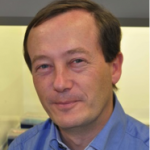Présentation
CANHPARI (Hepatosplenic candidiasisi: PETscan and immune response analysis) is an ongoing multicenter prospective pilot study investigating pathophysiology, diagnostic and therapeutic strategies of hepatosplenic candidiasis (HSC).
Chronic disseminated candidiasis, often referred to as HSC, is an infection due to Candida spp. mainly involving the liver and spleen. HSC occurs mostly in patients with profound and prolonged neutropenia, which is more often seen in patients with hematologic malignancies. Despite an appropriate antifungal prophylaxis, the incidence of HSC in France might be closed to 5% in patients suffering from acute leukemia. Early and adequate diagnosis and treatment of HSC are crucial, as treatment delays can negatively affect the prognosis of the underlying condition. Current guidelines recommend a 6-month duration treatment. Prolonged treatments up to 6 months are frequent, leading to antifungal toxicity and cost increase. Preliminary study by our team has already assessed F18 fluorodeoxyglucose (18F-FDG) positron-emission tomography scan (PET scan) as a diagnostic tool for HSC. 18F-FDG PET scan could be helpful in the diagnosis, follow-up and therapy strategy of HSC, helping to stop antifungal treatment. Other molecular, immunological and serological tools have to be developed in order to avoid hepatic biopsies. Actually, mycological evidence of infection is found in only 20% of the cases. The pathogenesis of HSC is also not well understood, but it is believed that it may be due to an unbalanced adaptive immune response that leads to an exacerbated inflammatory reaction, resulting in an Immune Reconstitution Inflammatory Syndrome (IRIS). In that context, a better understanding of the disease pathophysiology and of the potential genetic susceptibility could have an impact on therapy strategy. For example, new approaches such as the use of adjuvant high-dose corticosteroids have been shown beneficial. CANHPARI study is the first step to improve HSC diagnosis and therapy strategy.


